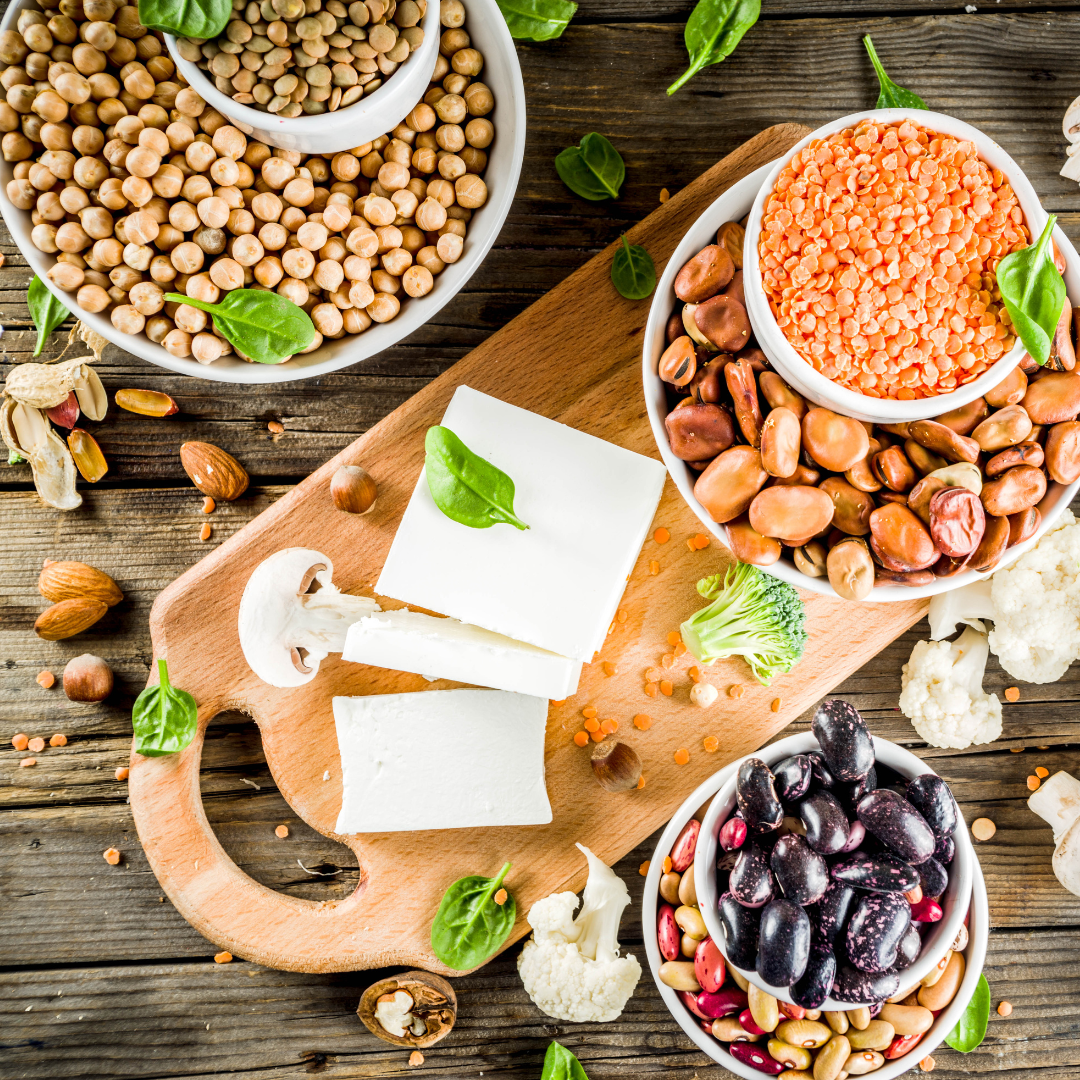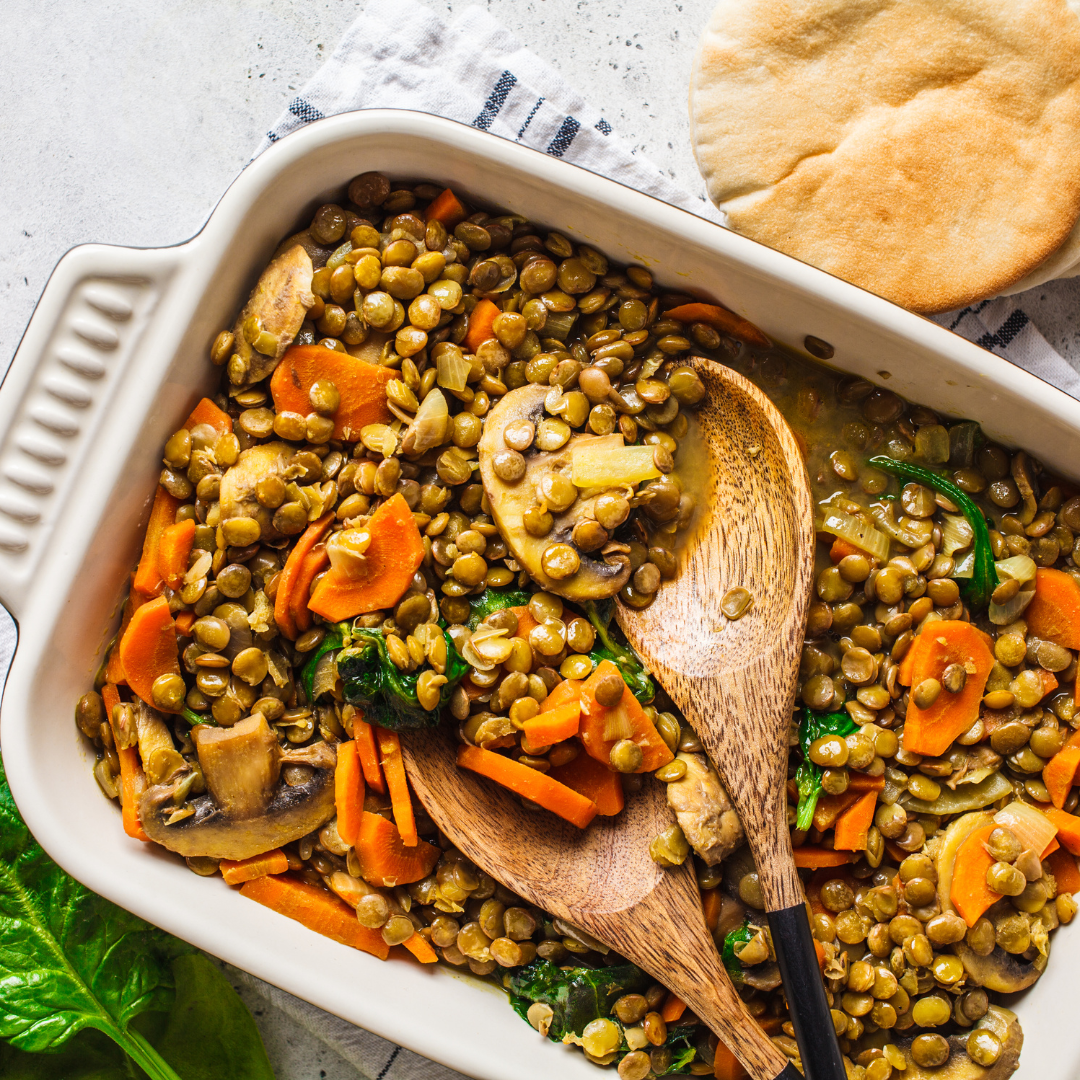
4 Top Tips for Plant-based Eating in Menopause
Plant-based diets continue to gain popularity, particularly in January, where the trend for Veganuary and vegan eating is very much front and centre across the media. But despite the terms plant-based and vegan being used interchangeably, there are differences between the two diets.
What’s the difference between plant-based and vegan?
A plant-based diet focuses on mostly eating foods derived from plants such as fruits, vegetables, grains, legumes, nuts and seeds. However, a plant-based diet doesn’t forbid occasional meat, fish, eggs or dairy. The focus is on plants first and animal-derived foods sparingly.
The Vegan Society defines a vegan diet as one that excludes all foods and non-food products that have resulted in the exploitation or cruelty of animals, as far as is practically possible. In contrast to a plant-based diet, in a vegan diet anything derived from animals is forbidden.
Can a plant-based diet support a healthy menopause?
A plant-based or vegan diet is suitable for any life stage, so long as it’s carefully planned. Menopause is no different. However, excluding or limiting animal-derived foods, may mean missing out on key nutrients. These include omega-3 fatty acids, vitamin A, vitamin B12, vitamin D, vitamin K, calcium, iron, iodine, selenium and zinc. Ensuring your diet covers these nutrients will help support your wellbeing through menopause.
How can I eat a more plant-based diet?
Starting a plant-based diet doesn’t need to feel overwhelming. Try these simple tips to introduce more plant-based foods into your diet. You don’t need to try them all at once. Try one and see how you get on, before introducing another.
Aim for one meat-free dinner each week
Meatless Monday encourages people to reduce meat intake, by skipping meat every Monday (or your day of choice). If avoiding meat or any animal-derived food for a whole day feels too daunting, start with one meal. Remember, if you’re removing meat from your diet, you need to replace it with another plant-based protein source, such as beans or tofu. Protein is important to maintain and build muscle, which supports a higher daily metabolic rate. This is important in menopause, since the decline of oestrogen causes the loss of muscle mass.

Swap cow’s milk for fortified plant-based alternatives
If you’re looking to ditch milk, always choose a fortified plant-based dairy alternative. Unfortunately, plant-based dairy alternatives aren’t nutritionally equivalent to cow’s milk. They tend to lack protein (with the exception of soya) and key micronutrients such as calcium, vitamin B12, iodine and vitamin D. To know if a dairy alternative is fortified with these missing micronutrients, read the ingredients and nutrition labels. Not all plant-based dairy alternatives are fortified with the same nutrients, so reading labels is crucial. As a minimum, look for those fortified with calcium, to help support bones and reduce the risk of developing osteoporosis.
Get inventive in the kitchen
Make adopting a plant-based diet an adventure by exploring new flavours and recipes. There’s a world of cuisines and ingredients to explore. If you’re struggling for inspiration, take a look at our plant-based cooking class with Ballymaloe-trained chef Fiona Staunton, where you’ll see demonstrations for three delicious recipes: chocolate seed bars; lentil salad and edamame, pea, feta and mint salad.
Challenge yourself
Set yourself a weekly challenge – from trying a new plant-based food each week to stirring up a new recipe, there’s a world of new tastes waiting for you.

Remember, you don’t have to go all in
At Harley Street at Home, we often talk about the importance of being realistic when making long-term change. If immediately switching to a plant-based diet (or even a vegan diet) feels daunting, take it step by step instead. For example, if you feel hesitant giving up a particular food you enjoy, try adopting a plant-based diet, but still include that food regularly in your diet. There are no solid rules. It’s about what works for you and what will be sustainable in the long-term.
In Summary
A plant-based or vegan diet can support a healthy menopause, if carefully planned. Start small, perhaps aiming for one meat-free meal each day or week, and add more in as you become more confident. It’s not a case of all or nothing. Small steps can build to long-term, sustainable change.
www.harleystathome.com | Instagram @harleystreetathomemenopause
Facebook: Search Harley Street at Home: Diagnosis, Symptoms & Treatments or Harley St at Home: Lifestyle, Self-Care and Lifestyle to join our private community



